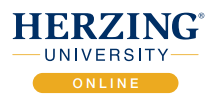How to Become a Healthcare Documentation Specialist in Wyoming

Want personalized recommendations?
Let's match you to the right program

A healthcare documentation specialist, also known as a medical transcriptionist, is responsible for converting voice-recorded medical reports into written documents. They play a crucial role in maintaining accurate patient records, ensuring effective communication between healthcare professionals, and facilitating the smooth operation of healthcare facilities.
Article continues after recommendations
Recommended for you
Responsibilities of a Healthcare Documentation Specialist
- Listen to voice recordings of medical professionals, including doctors, nurses, and other healthcare providers, and transcribe them into written reports.
- Edit and proofread medical documents for accuracy, grammar, and clarity.
- Ensure compliance with legal and ethical standards regarding patient confidentiality and data protection.
- Use specific medical terminology and abbreviations to accurately document diagnoses, treatments, and other medical information.
- Collaborate with healthcare professionals to clarify any unclear or ambiguous information in the documents.
Work Settings for Healthcare Documentation Specialists
Healthcare documentation specialists can work in various settings, including:
- Hospitals and clinics: They may be employed directly by healthcare facilities to handle transcription tasks onsite.
- Medical transcription companies: Many specialists work remotely for companies that provide transcription services to healthcare organizations.
- Independent contractors: Some specialists choose to work as freelancers, offering their services to multiple clients.
Requirements to Become a Healthcare Documentation Specialist in Wyoming
To become a healthcare documentation specialist in Wyoming, you need to meet the following requirements:
- Education: Most employers require a postsecondary certificate or an associate's degree in medical transcription or a related field. These programs provide training in medical terminology, transcription techniques, and software used in the field.
- Legal requirements: While Wyoming does not have specific licensing requirements for healthcare documentation specialists, some employers may prefer candidates who have obtained the Registered Healthcare Documentation Specialist (RHDS) certification from the Association for Healthcare Documentation Integrity (AHDI).
Finding Healthcare Documentation Specialist Classes in Wyoming
If you're interested in pursuing a career as a healthcare documentation specialist in Wyoming, Dreambound can help you find suitable training programs. Dreambound is the largest platform for students to find and compare vocational training programs.
By visiting Dreambound, you can easily search for healthcare documentation specialist classes in Wyoming. Dreambound provides a comprehensive directory of vocational training programs, including those offered by reputable institutions. This allows you to compare different programs, read reviews from past students, and make an informed decision regarding your education and career path.
How do I get my Healthcare Documentation Specialist certification?
If you're interested in pursuing a career as a Healthcare Documentation Specialist, obtaining the necessary certification is a crucial step towards achieving your goals. Certification not only demonstrates your expertise and knowledge in the field but also enhances your job prospects and earning potential. In this section, we will explore the steps you need to take to obtain your Healthcare Documentation Specialist certification.
Step 1: Research the Certification Programs
To begin your journey towards becoming a certified Healthcare Documentation Specialist, it is important to research the various certification programs available. One of the most recognized certifications in the field is the Certified Healthcare Documentation Specialist (CHDS) offered by the Association for Healthcare Documentation Integrity (AHDI). The AHDI is a professional organization dedicated to advancing the profession of healthcare documentation.
Step 2: Meet the Eligibility Requirements
Before you can apply for certification, you must ensure that you meet the eligibility requirements set by the certifying body. For the CHDS certification, the AHDI requires candidates to have a minimum of two years of experience in healthcare documentation. This can include experience in medical transcription, editing, or other related roles. Additionally, candidates must also possess a high school diploma or equivalent.
Step 3: Prepare for the Certification Exam
Once you have determined that you meet the eligibility requirements, it's time to start preparing for the certification exam. The AHDI offers study materials and resources to help candidates prepare for the exam. These materials include textbooks, online courses, and practice exams. It is recommended to thoroughly review the study materials and take advantage of any available practice exams to familiarize yourself with the exam format and content.
Step 4: Schedule and Take the Certification Exam
After thorough preparation, you can schedule your certification exam through the AHDI website. The CHDS certification exam is a computer-based exam that consists of multiple-choice questions. The exam assesses your knowledge and skills in various areas such as medical terminology, anatomy, physiology, grammar, and editing. It is important to arrive at the testing center well-prepared and well-rested to give yourself the best chance of success.
Step 5: Maintain Your Certification
Once you have successfully passed the certification exam and obtained your Healthcare Documentation Specialist certification, it is important to maintain your certification. The AHDI requires certified professionals to participate in continuing education activities to stay up-to-date with the latest developments in the field. This can include attending conferences, webinars, workshops, or completing online courses. By maintaining your certification, you demonstrate your commitment to professional growth and development.
How do I get a job as a Healthcare Documentation Specialist?
Now that you have obtained your Healthcare Documentation Specialist certification, you may be wondering how to secure a job in this field. In this section, we will explore the steps you can take to increase your chances of finding employment as a Healthcare Documentation Specialist.
Step 1: Update Your Resume
Before you start applying for jobs, it is important to update your resume to highlight your certification and any relevant experience you have. Include details about your education, certification, and any previous healthcare documentation or related roles you have held. Be sure to emphasize your skills in medical terminology, grammar, editing, and attention to detail, as these are crucial for success in this role.
Get courses selected just for you
Try our powerful search engine
Article continues after recommendations
Step 2: Network with Professionals in the Field
Networking can be a valuable tool when searching for a job as a Healthcare Documentation Specialist. Reach out to professionals in the field, join industry-related groups on social media platforms, and attend conferences or events to meet potential employers or colleagues. Networking can help you gain insights into the job market, learn about potential job openings, and establish valuable connections that may lead to job opportunities.
Step 3: Utilize Job Search Platforms
Utilize online job search platforms to find job opportunities as a Healthcare Documentation Specialist. Websites such as Indeed, LinkedIn, and Glassdoor often have job postings specifically for healthcare documentation professionals. Create a profile on these platforms, upload your updated resume, and set up job alerts to receive notifications about relevant job openings. Be proactive in applying for jobs and follow up with potential employers after submitting your application.
Step 4: Prepare for Job Interviews
Once you start receiving interview invitations, it's important to prepare thoroughly for the interviews. Research the organization you are interviewing with, familiarize yourself with their mission, values, and any recent news or developments. Review common interview questions and practice your responses. Be prepared to discuss your experience, skills, and how your certification as a Healthcare Documentation Specialist makes you a qualified candidate for the position.
Step 5: Consider Specializing or Gaining Additional Credentials
As a Healthcare Documentation Specialist, you may have the opportunity to specialize in a particular area of healthcare documentation, such as radiology or cardiology. Specializing can make you a more competitive candidate for certain job openings and may increase your earning potential. Additionally, consider gaining additional credentials, such as the Registered Healthcare Documentation Specialist (RHDS) certification offered by the AHDI. This certification is designed for individuals who are just starting their career in healthcare documentation and can further enhance your job prospects.
Career Paths and Opportunities after Becoming a Healthcare Documentation Specialist
Once you have become a certified Healthcare Documentation Specialist and secured a job in the field, there are various career paths and opportunities available to you. In this section, we will explore some of the potential career paths and growth opportunities for Healthcare Documentation Specialists.
1. Medical Transcriptionist
Many Healthcare Documentation Specialists start their careers as medical transcriptionists. In this role, you will listen to recorded dictations from healthcare professionals and transcribe them into written reports. This can include medical histories, physical examination reports, operative reports, discharge summaries, and more. As a medical transcriptionist, you will need to have excellent listening skills, attention to detail, and a strong command of medical terminology.
2. Medical Editor
Another career path for Healthcare Documentation Specialists is to specialize in medical editing. In this role, you will review and edit transcribed reports for accuracy, grammar, punctuation, and adherence to formatting guidelines. Medical editors ensure that the final reports are error-free and meet the required standards. This role requires strong editing skills, knowledge of medical terminology, and attention to detail.
3. Quality Assurance Specialist
As a Quality Assurance Specialist, you will be responsible for ensuring the accuracy and quality of transcribed reports. This can involve reviewing a sample of transcribed reports, providing feedback and training to medical transcriptionists, and implementing quality improvement initiatives. Quality Assurance Specialists play a crucial role in maintaining the integrity of healthcare documentation and ensuring compliance with industry standards.
4. Medical Coding Specialist
With additional training and certification, Healthcare Documentation Specialists can transition into medical coding roles. Medical coders assign specific codes to diagnoses, procedures, and treatments for billing and reimbursement purposes. This role requires a strong understanding of medical terminology, coding guidelines, and regulatory requirements. Medical coding can offer excellent career growth opportunities and the potential for higher salaries.
5. Health Information Management
Health Information Management (HIM) is another career path that Healthcare Documentation Specialists can pursue. HIM professionals are responsible for managing and organizing patient health information, ensuring its accuracy, confidentiality, and accessibility. This can include tasks such as maintaining electronic health records, implementing health information systems, and analyzing healthcare data for reporting and research purposes. HIM roles often require additional education and certification.
Final Thoughts
Becoming a certified Healthcare Documentation Specialist can open up a world of opportunities in the healthcare industry. From medical transcription to medical editing, quality assurance, medical coding, and health information management, there are various career paths and growth opportunities available. By obtaining the necessary certification, networking, and staying up-to-date with industry trends, you can position yourself for a successful and fulfilling career as a Healthcare Documentation Specialist. Start your journey today and take the first step towards achieving your professional goals.
Dreambound simplifies your start in this field with tailored guides for various cities. If life takes you elsewhere or you're thinking about a move, our other guides can help you figure out what to expect.
- Healthcare Documentation Specialist classes near me in Akron
- Healthcare Documentation Specialist classes near me in Columbus
- Healthcare Documentation Specialist classes near me in Las Vegas
- Healthcare Documentation Specialist classes near me in Oxnard
- Healthcare Documentation Specialist classes near me in San Francisco
If you're exploring various professional paths, Dreambound has in-depth guides to help assist you. Explore a few of these resources below.

Athena is Co-founder and CEO of Dreambound.



